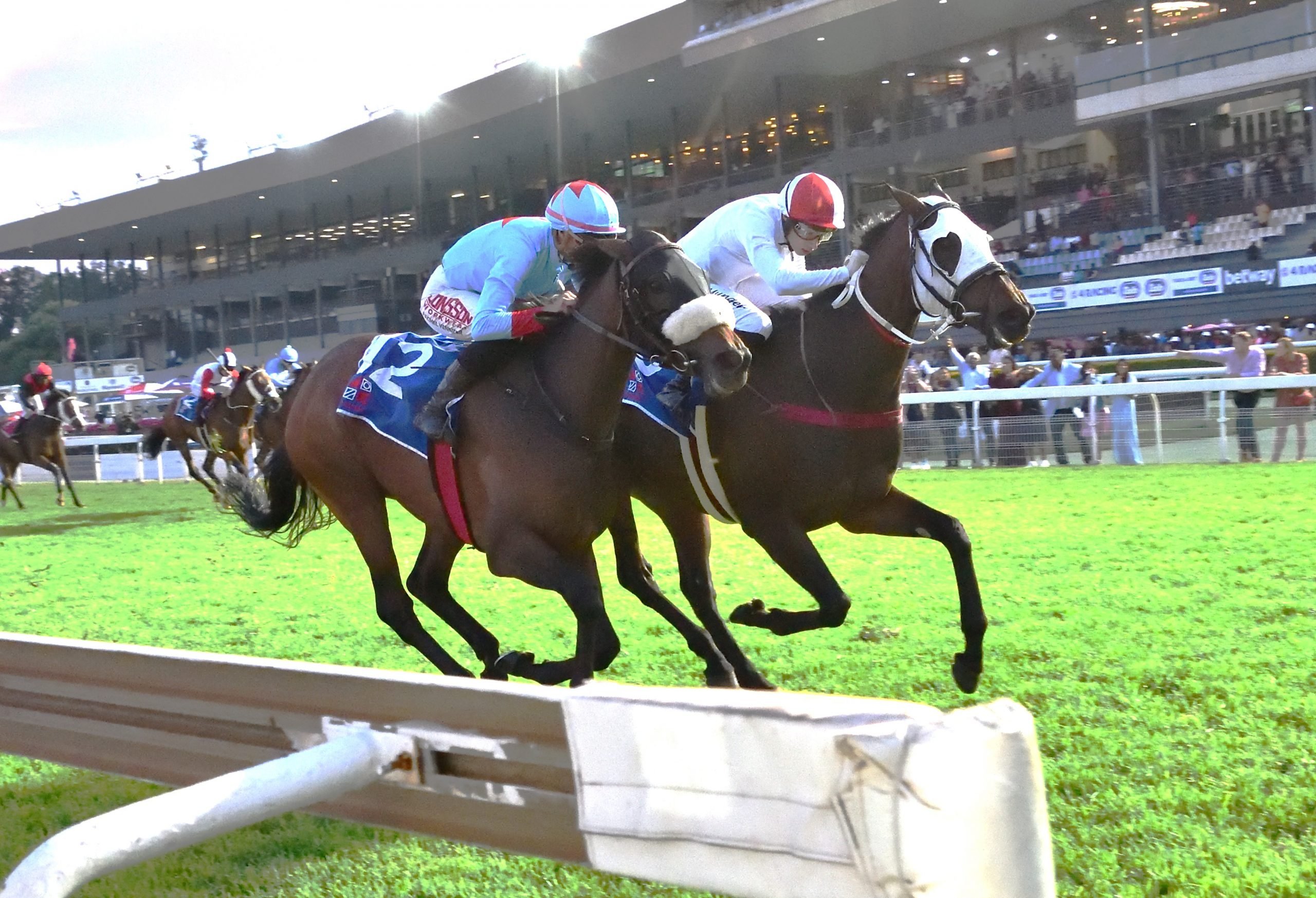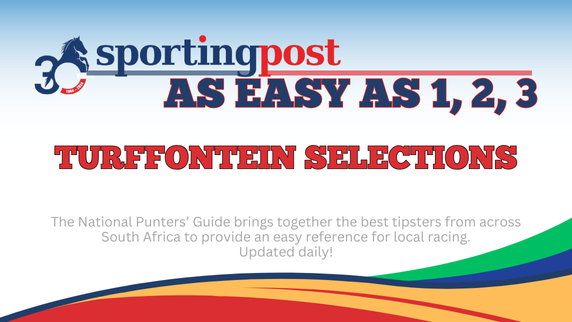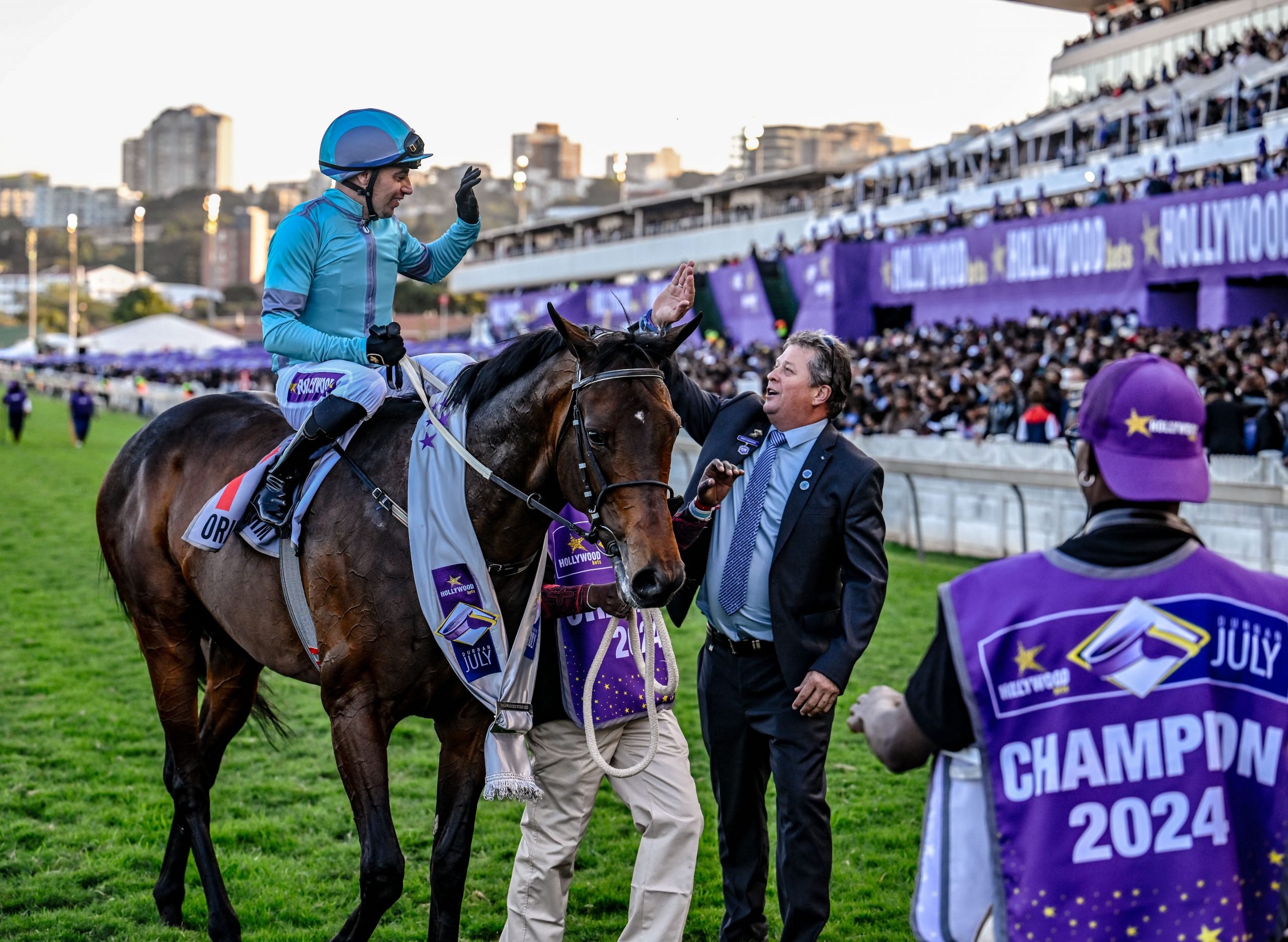I refer to the above-mentioned letter sent to the Sporting Post by Mr Charles Savage and published on 25 May. I wish to offer a few comments.
I firmly agree with Mr Savage that horse racing is not short of opinion. It never has been and probably never will be!
For the purposes of a proper debate, I would urge all readers to distinguish between the sport of thoroughbred horseracing on the one hand and the industry that bets thereupon on the other.
The sport of thoroughbred horseracing is a sport just like soccer, rugby, cricket, etc. The jockeys and horses compete vigorously with one another on the various race tracks, just like the Bulls team compete with the Stormers team and the Kaizer Chiefs team compete with the Orlando Pirates team. The trainers also compete vigorously with one another, just like Jose Mourinho competes with sir Alex Ferguson and Arsene Wenger (to name but two) in football. The owners (who are the club members) and who bear the bulk of the responsibility for the funding of the sport also compete with one another, head on. Owners bid against one another to buy horses and then have their horses compete with one another, just like professional sports clubs buy players and have them compete in teams against one another. Our owners’ interests are represented by the Racing Association that interacts with Phumelela on a collective basis through its Board representatives. Other than competing for on-course advertising, naming rights, on-course sponsorships and the like (which makes a minimal contribution to the total funding structure of the sport) Loftus Versfeld does not compete with Newlands stadium. So too do I submit that it is not necessary and/or practical for Turffontein to compete with Kenilworth or Greyville. Kenilworth very much competes with Newlands stadium for on course attendance as on match days followers of both sports can choose between going to watch the Stormers or going racing. Similarly, Turffontein competes with Soccer City and Coca Cola Park for on-course attendance.
Mr Savage states that “… interests of horseracing must be secured through strong, transparent, professional competition.”
As far as transparency is concerned, I believe that one will go a long way to find greater transparency than that which is required of a company listed on the JSE. I also support the rest of this statement wholeheartedly insofar as it relates to owners, trainers, jockeys and horses competing vigorously. However, as is the case with other major sports, from a practical, cost and revenue point of view it is necessary to administer the sport on a national basis to ensure that the sport remains viable on a national basis.
I shall now turn to the industry that bets on horseracing.
In South Africa, approximately 43% of all bets on horseracing are placed with bookmakers and 57% with totalisator operators. Prior to the legalisation of casinos, the national lottery, limited payout machines (“LPM’s”), betting on other sports and bingo, betting on horseracing enjoyed 100% of the gambling and betting market in South Africa. Today, with all of these forms of gambling and betting being legal, betting on horse racing comprises some 5% and totalisator betting on horseracing some 3%. Hardly dominant or monopolistic!
Pool sizes drive totalisator betting. Similar to the national lottery, if we have a carryover pool it attracts far more betting. This is the whole reason for commingling. A standalone tote in any one province in South Africa will not be viable as it simply cannot generate pool sizes big enough to attract punters’ bets. We recently demonstrated to the parliamentary subcommittee reviewing all aspects of gambling in South Africa that a R10 000 win bet into the nationally commingled pool destroyed the punter’s odds from 7:1 to 3:1. Hardly an exciting reason for a punter to place a tote bet. If we were to have 9 standalone totes in South Africa (i.e. one in each province) a bet as small as R1 000 would destroy the punter’s odds in the smaller pools. The punter would therefore have less of a choice and be forced to take a fixed odds bet.
The impact of reduced tote betting on the funding of the sport of horseracing should not be under estimated. An independent survey, recently conducted, revealed that betting on the tote contributed 88% of the R608 million that it cost to “put up the show”, and this from 57% of the bets placed!
Mr Savage goes on to say “… the currently fragmented gaming landscape will be better served by an integrated gaming strategy that benefits from several sources of revenue, efficiencies of scale, broad based stakeholder participation and deeper distribution and access to clients through gaming partnerships.”
Phumelela’s partnerships with Gold Circle and Tabcorp and strategic relationships with SiS, GBI, ATG, Unire and PMU, to name but a few, have materially driven our international profits which grew 100% in the first six months of our 2012 financial year and now comprise some 65% of our bottom line profits. Had we not incorporated in 1997, internationalised and diversified into fixed odds and tote betting on other sports, as well as LPM’s and bingo we would have been loss making today.
Phumelela is committed to transformation in all respects. The 26% shareholding in Phumelela subscribed for at 50 cents per share by broadly based black economic empowerment groups when we listed must rank as one of the more financially rewarding BBBEE initiatives to date in South Africa. We achieved level 3 BBBEE status in 2011 and have committed to achieve level 2 by 2015. Whilst we recognise that transformation needs to be accelerated at owner and trainer level, please bear in mind that such initiatives are not under Phumelela’s control. Furthermore, although our prize monies expressed as a percentage of keeping our national horse population in training compares very favourably with racing jurisdictions such as the United Kingdom (“UK”), the vast majority of our owners continue to lose significant amounts of money by participating as owners. We consider it our task to grow prize monies as best we can so as to make it more attractive for less wealthy (including previously disadvantaged) owners to participate in the sport as owners.
I must also point out that Mr Savage’s call for membership structures to be transferred, etc. was heeded in 1997 when the Racing Association, the Thoroughbred Trust and Phumelela were formed by agreement between the three racing clubs, Turffontein, Newmarket and Gosforth Park with the Gauteng government. Arm’s length agreements were put in place between the parties and Phumelela was subsequently listed on the JSE, requiring the necessary transparency and accountability that goes with being a listed company.
Whilst we do not believe that it is in the best interests of the sport to separate the administration and ownership of the sport from the industry that bets thereon, we would welcome a proper examination of the viability thereof, including the additional funding that would need to be obtained from other participants in the industry that bets on horseracing.
Mr Savage cites Australia as an example of successful separation of racing from the business that bets thereon. Again I must caution against over simplification. The tote companies in Australia are a mix of corporate and government ownership across the country. All have exclusive rights in the retail environment. There are no corporate bookmakers with a retail shop front anywhere in Australia, even though there are over 5,000 places to place a bet with the tote companies. Contrast this with South Africa’s approximately 400 retail tote outlets. In more recent times the tote companies have also begun to provide fixed odds betting to customers to counter the proliferation of online bookmakers offering betting on racing and returning far less to the sport.
It is therefore a completely different regulatory landscape if compared to South Africa.
The UK is another example of a market where racing administration is separated from the industry that bets thereon. Prize monies in the UK for a maiden average GBP3 500 (R46 000), whilst in South Africa prize monies for a maiden average R65 000. The cost of keeping a horse in training in the UK is no less than three times the cost of keeping a horse in training in SA. Also, in the UK Trainers pay commercial rates for training facilities and pay for their own transport of the horses to the racecourses. In South Africa training and stabling facilities and the transport of horses between training centres and racecourses are heavily subsidised.
Note that there is only one national tote in each of Japan, Hong Kong, France, Singapore, Sweden, Italy, Greece and the UK. In most of the world’s successful horseracing jurisdictions there is one national tote which is owned by the racing administrators. Interestingly, fixed odds bookmaking is also illegal in three of the world’s most successful jurisdictions (Japan, Hong Kong and Singapore). In France the PMU has exclusive rights over betting on horseracing (i.e. it is illegal to offer fixed odds betting on horseracing) and betting on other sports is only permitted on the internet (i.e. no retail outlets are permitted for bookmakers). The turnover of the PMU is orders of magnitude higher than the turnover of the UK Tote. Yet, there is no justification for this difference when comparing the size of the French economy to that of Britain?
In the USA it is common for tote licenses to be awarded to the racing administrators in each state. Note that the economies of most, if not all, of the states in the USA are bigger than the entire South African economy. Please also note that fixed odds bookmakers are illegal except in the state of Nevada. Furthermore, racecourses derive on average more than 50% of their revenues from casino licenses at their racing venues (so called “racino’s”), a privilege we would be grateful to enjoy if our government were prepared to issue further casino licenses!
It is a key part of our strategy to continuously seek new and additional forms of revenue. To this end we have aggressively internationalised our business and diversified into fixed odds betting, tote betting on other sports such as soccer and rugby, LPM’s and bingo. We have and will continue to bid for other licenses, for example online casinos, and 40 LPM/MPM sites as and when they become available.
We acknowledge that the income tax that we pay to the government and the dividends that are earned by our shareholders could otherwise have been ploughed back into the sport (i.e. if we had remained a club). However, we believe that the additional capital that was raised upon our listing, together with accountability and transparency that comes with being a company listed on the JSE, outweighs this negative. In any event, we had no choice as our business model, including our 26% BBBEE shareholding, was a requirement of our regulators.
We employ some twenty four times more people per million Rand of gross gaming revenue than casinos do. We are working with the parliamentary sub-committee reviewing all aspects of gambling in South Africa to level the playing field between all participants in the greater gambling industry and to put in place a funding model that will enable us to grow the sport and its employment opportunities.
via email – Rian du Plessis
Group CEO – Phumelela Gaming and Leisure Limited








